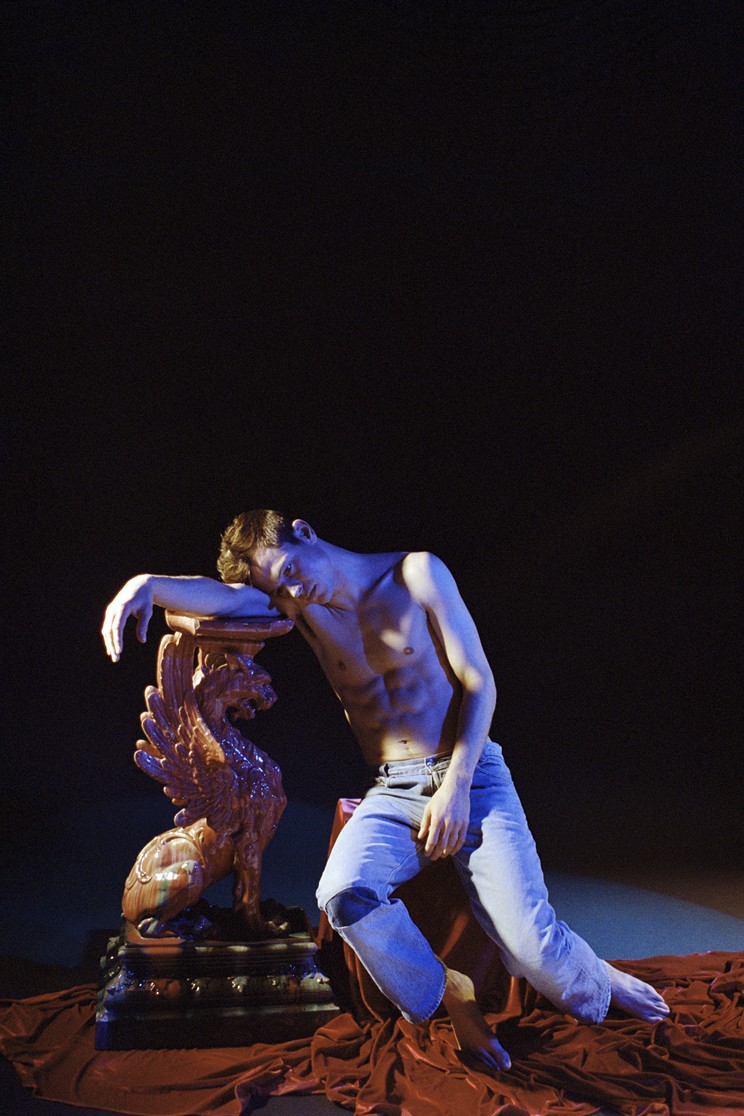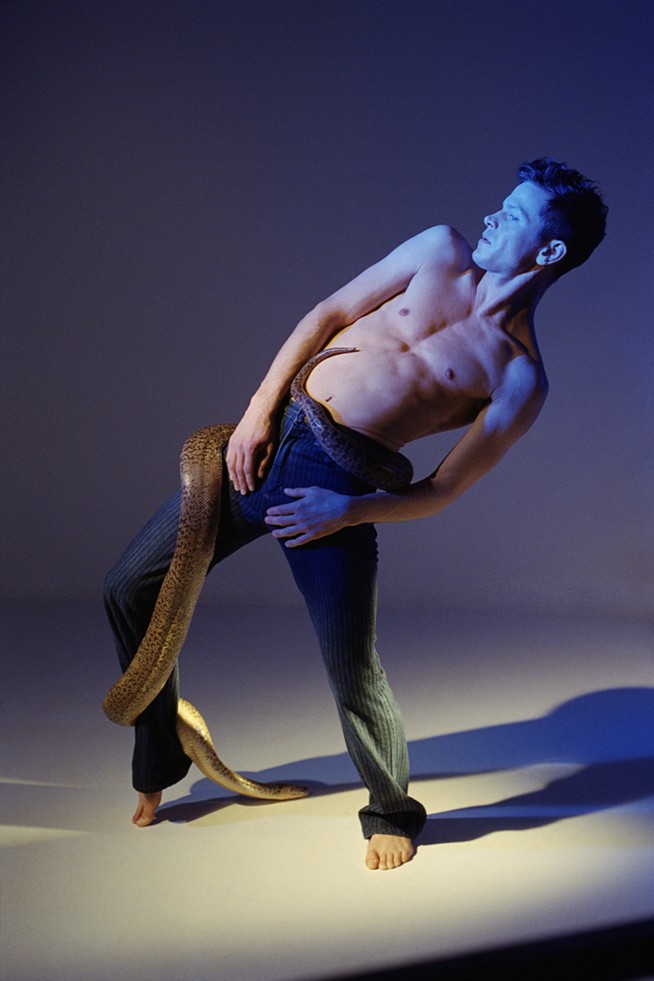Mike Hadreas—the musician who performs under the moniker Perfume Genius–sits crumpled in one corner of the Zoom call when The Coast reaches him days before his appearance at Halifax Jazz Festival. His arms fold inwards on themselves as his gaze probes off camera, thinking deeply about how to answer each question while also seemingly ready to fly off, high as his signature chamber-pop melodies soar.
Every press piece promoting his newest album, June’s Ugly Season, has a quote about wanting to escape or transcend his body. “Maybe it's not like my body I'm trying to get away from—it's just all this needless junk,” Hadreas says when asked about this, not making eye contact or ever quite settling. If it feels like he’d rather be anywhere than this 9pm chat—probably because the only place he reaches the physical ascension all of his music drives towards is on stage.
With a theatrical grandness that equally evokes Roy Orbison and The Eurythmics, Perfume Genius makes music that has hip-coiling and hot strutting at the top of its agenda (all tempered by a streak of mascara-smudging sadness). It feels at once ironic and logical, then, that the limits of the corporeal form are top-of-mind for Hadreas: So much of his music is about living inside a gay man’s body, from the carnal (“Jason”) to the political (“Just Like Love”) to aging (“Whole Life”) to illness (“Describe”). Ugly Season takes the fascination with the physical even further, as it was adapted from a soundtrack made to accompany Hadreas’ foray into professional dance in a performance with the choreographer Kate Wallich and her company, The YC. (He is quick to clarify that the album came before the dance show, though, and that’s part of why it stands alone so easily.)
Here, we catch up with Hadreas on how physicality informs his performance, why we still need gay anthems, and how he keeps his flair for the dramatic in check.
The Coast: In my research before our chat, I noticed it seems like a lot of music journalists and reviewers read Perfume Genius’ focus on the physical as something to do with 2SLGBTQ+ identity. Does this feel true to you, or is that something that they’re reading into the work?
Mike Hadreas: I don't have anything to compare it to, really. I only have this one. So I don't know. I think it definitely has informed my relationship with my own body and informed how I write and who I'm trying to connect to, because I wish I would have heard certain things when I was younger. But also it's just kind of how it is. So it's kind of confusing.
Something I love about your work is how it has this real dramatic flair that feels at once old-world baroque and ‘80s new romantic. But I wonder: Do you ever worry about being too much or too high-concept or too arty? And if so, how do you deal with those concerns?
Yeah, but I do. Even on stage now, what feels theatrical to me, or like, overly theatrical: I'll watch it back and I'm like barely extending my arm. But it's weird because of that line in your brain. Everybody has a different one, but I'm terrified of crossing it—but I also don't care. I want to see somebody go for it. I like effort. I like seeing people really push it and be ultra, dead serious about what they're doing, you know? But of course there's like a line to it, and it has to be good.
I actually think about it a lot. But at the same time, I mainly think about it in [terms of] what feels good to me. Like, I don't want to be too indulgent and just be completely fuelled by my own desires— but then, when I really try to go back and think about everything I've ever done, hasn’t that been what I've been doing this whole time?
A lot of your lyrical matter is about gay love and gay identity. Why is that still important in 2022?
I've always been searching for comfort and a way to feel a little safer for a moment or to feel less lonely in the things I'm going through. I hope it's different now—and I'm sure it is in a lot of ways, but growing up queer felt very lonely for a long time. I knew because of dial-up internet there were other gay people. But I was just talking to my mom about it: Like, [back then] I thought I had to move to the city, and it was gonna be dark and scary. But you know, it would be fun too.
I had no map for joy or some sustainable, long thing. I like making songs and writing in a way that will give people a little more to season their connection, their engagement with the world. I think that that will always be valuable—and definitely more valuable in a time where rights are in danger of being taken away.
So, a large part of your work is about the body. Then you become a professional dancer and make these songs to go along with this choreography. What role does the body play in how you deliver your music to your fans?
When I made music that was a little louder and more raucous, I realized that I can't just stand there and sing it anymore. I needed to communicate more. It was a little more rebellious at first, like I was just kind of flinging myself around, kind of haphazard, all improvised and stuff. Now, I don't have choreographers, but I've been doing it long enough to know like, ‘Oh, it feels good to be closer to the ground for this part of the song.’ It feels like I have more of an arc to it. And I have a little bit more control over it now—but still making a lot of room for me to kind of go nuts, which is what I actually really want to do, but that's not a sustainable thing.
Perfume Genius plays Halifax Jazz Festival with The Weather Station on July 15 at the festival main stage (the corners of Salter Street and Lower Water Street).


